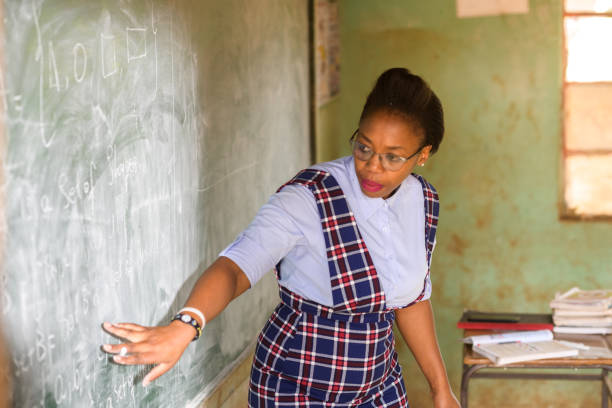Diploma in Special Needs Education (SNE): Application Guide, Requirements, and Fee Structure.
The Diploma in Special Needs Education (SNE) is a two-year course offered in accredited institutions that administer KNEC examinations. These exams are recognized by professional bodies, including the Teachers Service Commission (TSC). The Kenya Institute of Special Education (KISE) manages the delivery of this programme.
This diploma is conducted through school-based sessions in designated training centres located across Kenya. Some of these centres include the KISE Main Campus, Shimo La Tewa High School, Eregi Teachers Training College (TTC), Migori TTC, and Kericho TTC.
Eligibility and Application Process
Applicants must meet specific minimum qualifications to be eligible for Special Needs Education (SNE) training. These include various teaching certifications and a required period of teaching experience. The accepted categories are as follows:
- Individuals holding a P1 Primary Teacher Certificate obtained through formal training, accompanied by at least two years of teaching experience.
- Candidates who possess a Certificate in Early Childhood Development Education (ECDE) awarded by a government institution, and have attained a minimum grade of D+ in KCSE or Division II in KCE or an equivalent qualification. These candidates must also have at least two years of teaching experience.
- Teachers who were promoted to the P1 level after successfully passing the Primary Teacher Certificate (PTC) examination, which is administered by the Directorate of Quality Assurance and Standards under the Ministry of Education in Kenya.
- Individuals with a P2 Teacher Certificate along with a certificate in Special Needs Education (SNE) from the Kenya Institute of Special Education (KISE) or any other recognized institution. These candidates must have achieved at least a D plain in KCSE or Division IV in KCE or an equivalent and must also have at least five years of teaching experience.
Applicants interested in enrolling for the Diploma in Special Needs Education through the school-based programme must submit their applications via application.kise.ac.ke. To be eligible, one must be a TSC-registered teacher with a minimum of two years of teaching experience.
Areas of Specialization
The diploma offers several specialization areas, including:
- Autism
- Visual Impairment
- Intellectual Disabilities
- Physical Disabilities
- Hearing Impairment
- Emotional and Behaviour Difficulties
- Gifted and Talented
- Deafblind
- Learning Disabilities
- Inclusive Education
Mid-Course Assessment Requirements
After the first year of study, trainee teachers must undertake a national mid-course assessment administered by KNEC. This evaluation is electronic (e-assessment) and takes place in April. Passing this assessment is crucial, and those who fail may be referred.
Each trainee is required to have a high-end laptop that meets the following minimum specifications for the e-assessment:
- Licensed Windows 10 version 22H2 or newer
- Minimum 14-inch screen with 1920×1080 resolution
- Integrated webcam
- SSD storage of at least 256GB
- 8GB RAM
- Intel Core i3 (6th generation or above)
- Internal battery lasting over 3 hours
- Wireless connectivity supporting IEEE 802.11 (ac, g, or n)
Additionally, principals of the diploma training colleges are expected to ensure a reliable internet connection and constant power supply during assessments.
KISE Diploma in SNE Fee Structure
Year 1 Fee Breakdown
| Vote Head | Session 1 | Session 2 | Session 3 | Sub Total |
|---|---|---|---|---|
| Registration | 3,000 | – | – | 3,000 |
| Tuition | 25,810 | 16,000 | 9,610 | 51,420 |
| Administration | 3,200 | 3,200 | 3,200 | 9,600 |
| Sub Total | 32,010 | 19,200 | 12,810 | 64,020 |
| KNEC Exam (Yr 1) | 7,700 | – | – | 7,700 |
| Total (Yr 1) | 39,710 | 19,200 | 12,810 | 71,720 |
Year 2 Fee Breakdown
| Vote Head | Session 4 | Session 5 | Session 6 | Sub Total |
|---|---|---|---|---|
| Registration | – | – | – | – |
| Tuition | 21,180 | 11,400 | 6,550 | 39,130 |
| Administration | 3,200 | 3,200 | 3,200 | 9,600 |
| Sub Total | 24,380 | 14,600 | 9,750 | 48,730 |
| KNEC Exam (Yr 2) | 10,600 | – | – | 10,600 |
| Total (Yr 2) | 34,980 | 14,600 | 9,750 | 59,330 |
Grand Total for Two-Year Programme: KES 131,050
Read Also: State of Universities: Higher Education Reforms and Realities
Examinations and Practical Training
The Kenya National Examination Council is responsible for overseeing external assessments related to the SNE program. Students are evaluated through two major modules. The first is a multidisciplinary module administered in April of the first year.
The second is a specialized module, also conducted in April, but during the second year. During the sixth term, each trainee participates in a teaching practice. This practical component is carried out in a school that serves learners with the specific disability area that the student has specialized in.
This comprehensive guide is intended to clarify the structure, requirements, and cost of pursuing a Diploma in Special Needs Education in Kenya.
Diploma in Special Needs Education (SNE): Application Guide, Requirements, and Fee Structure.
Follow Teachers Updates on Facebook, LinkedIn, X (Twitter), WhatsApp, Telegram, and Instagram. Get in touch with our editors at hello@teachersupdates.news.



Discussion about this post